Learning
Learning is a continual process of improving. Examinees that do not pass the bar exam simply did not learn enough about the exam. Most failing examinees did not learn how to prioritize their studying. Some examinees may not have learned of the importance of the MBE. Some examinees may not have scored well on the MBE because they did not learn about maintaining an MBE Rules outline. Some examinees may have done poorly on the MEE/MPT because they did not learn from previously graded MEEs/MPTs. Furthermore, the learning doesn't have to be legal knowledge - some examinees may not have learned how to properly allocate their time for each component of the exam (resulting in unfinished portions of the exam). Some examinees may not have learned how to conquer their anxiety through practice and confidence in their study methods.
To be successful, a person must continually learn, including myself. I passed the NY bar exam in July 2005 on my first attempt (162 MBE) and made the free-site shortly thereafter. Examinees then began to send me their scores/essays (I started sending examinees a 1-page report on their scores and I now provide failing examinees with a free 12 page analysis of their scores and a 37 page analysis of their essays). I create these analysis reports because they help examinees better understand their mistakes while the information helps me better understand the exam. I started the subscription site in 2008 and have documented the accuracy of the MASTER essay outline since its inception. I realize that I am very fortunate to be in a position where I get to speak with many examinees about the exam. I don’t take this for granted and I continually work on improving what I do (while cataloging everything). In the past eight years, I have spent more time analyzing the bar exam than any single person in the world. In that time, I have examined the scores from over 4,200 failing examinees and reviewed over 2,500 graded essays/MPTs. In the bar review off season, I spend the bulk of my time researching and analyzing. Since 2005, I have spent over 15,000 hours researching the components of the bar exam. For example, over the past 10 years, I have collected over 50,000 outlines (if you want to send me yours, please send them to joe@seperac.com) and purchased over 1,500 law books. For each lawbook/casebook/hornbook I acquire, I cut off the spine using an industrial paper cutter, scan the pages, and then OCR the resulting PDF in order to search the text. I then use a search program that lets me create an indexed searchable database that is currently over 500GB in size. I can essentially find/research anything related to the bar exam in a matter of seconds, whether it is the answer to an MBE question or some arcane legal principle. Put simply, if you have a question related to the exam, I can answer it.
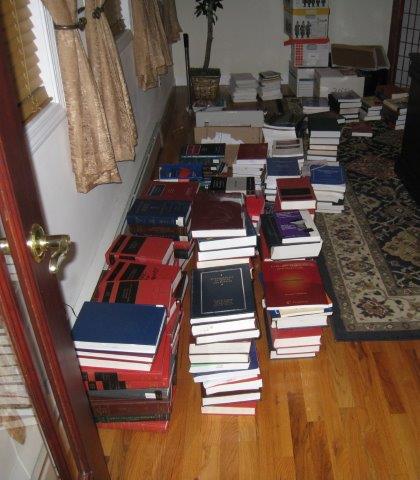 |
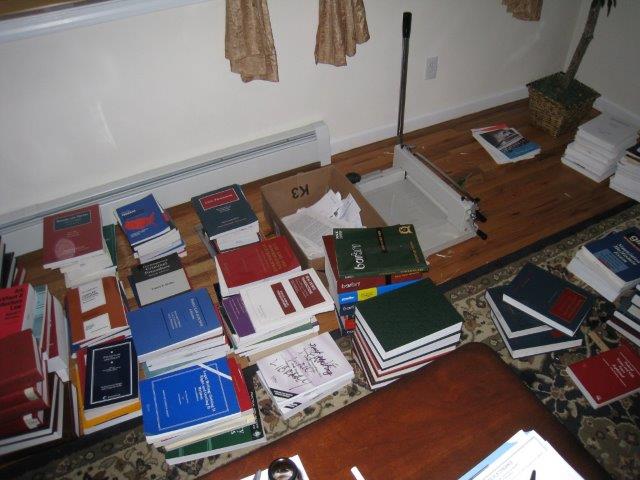 |
Law Books from 2010/2011 to to be cut and scanned |
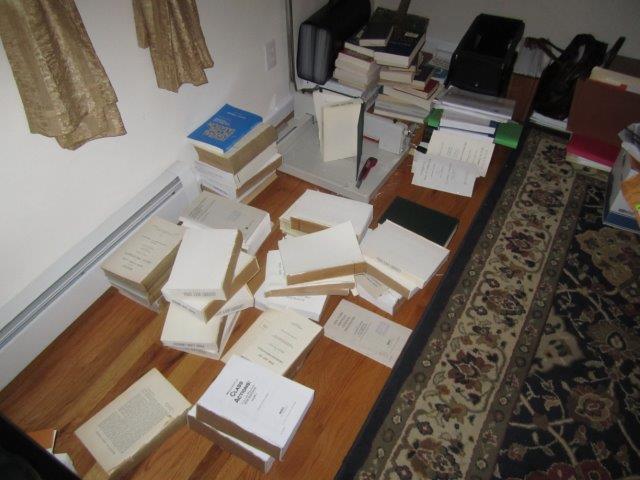 |
Law Books from 2012 to to be cut and scanned |
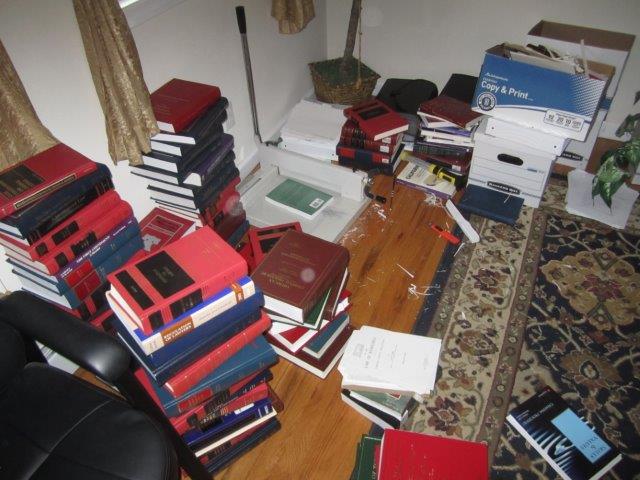 |
Law Books from 2013 to to be cut and scanned |
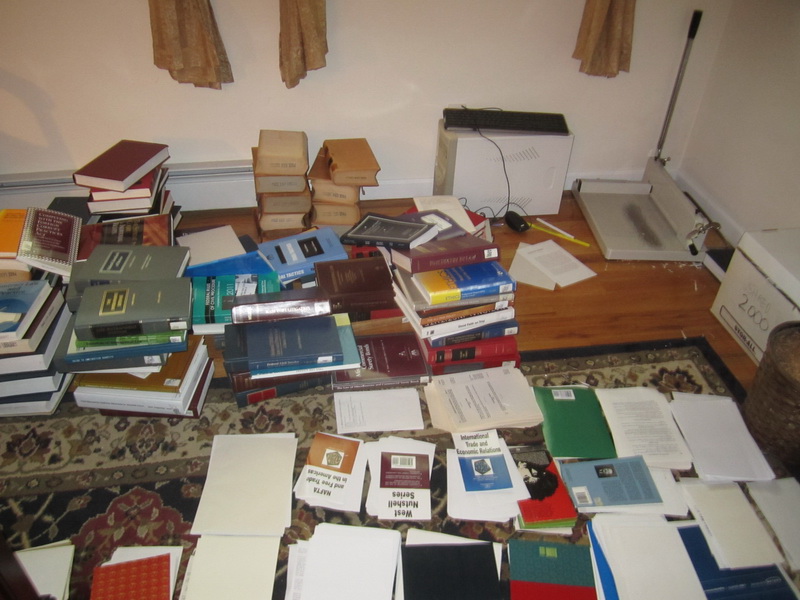 |
Law Books from 2014 to to be cut and scanned |
|
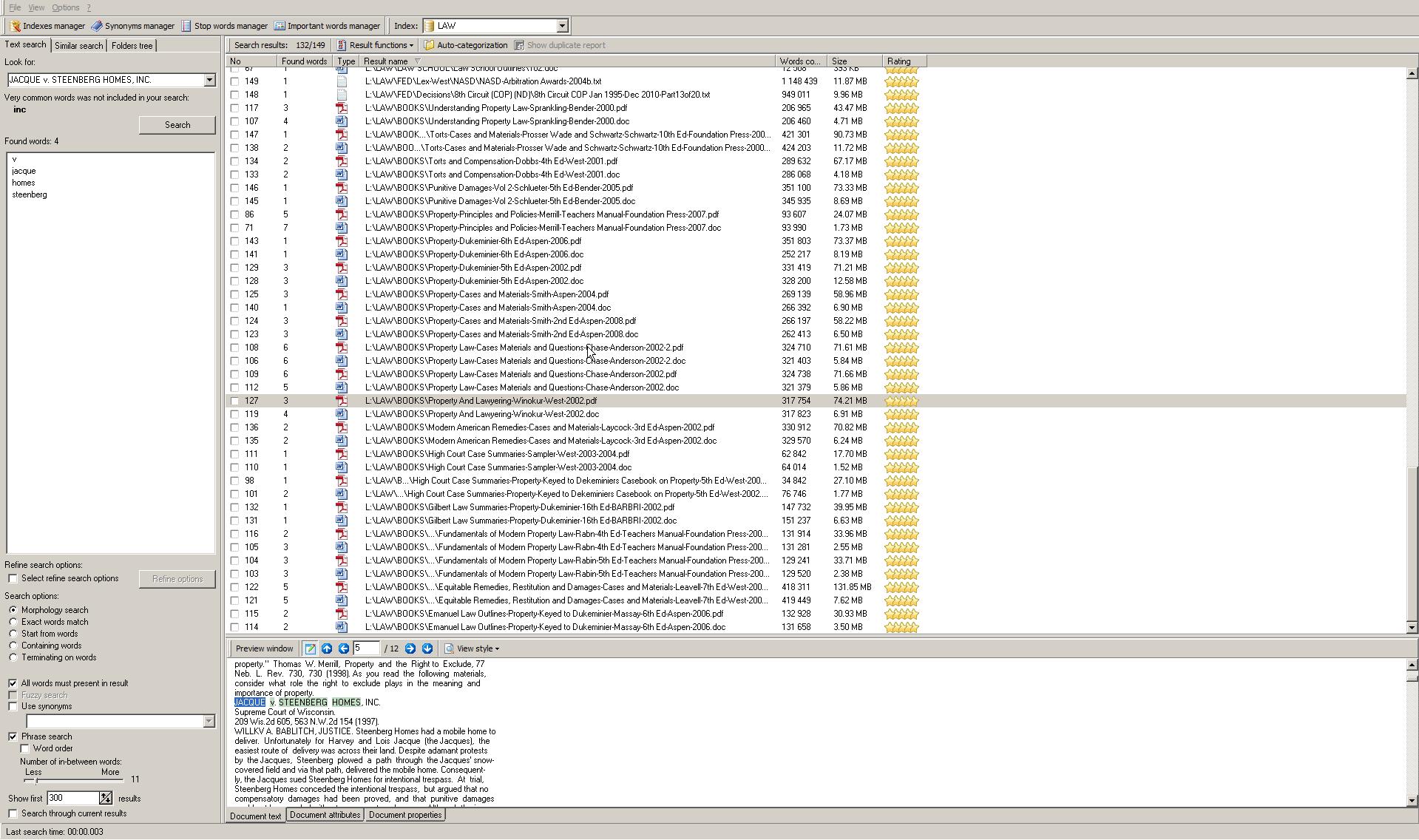 |
Database Search |
Also included in the database are cases and opinions: NYSBA Ethics Opinions from 001 to 951 (to Dec 2014); New York Court of Appeals Decisions from 1992 to Dec 2014; New York Appellate Division, First Dept Decisions from 1970 to Dec 2014; New York Appellate Division, Second Dept Decisions from 1970 to Dec 2014; New York Appellate Division, Third Dept Decisions from 1970 to Dec 2014; New York Appellate Division, Fourth Dept Decisions from 1970 to Dec 2014; New York SLIP Decisions from Dec 03 to Dec 2014; New York Court of Claims Decisions - March 2000 to Dec 2014; 1st Circuit Court of Appeals (MA) from Jan 1995 to December 2013; 2nd Circuit Court of Appeals (NY) from Jan 1995 to December 2013; 3rd Circuit Court of Appeals (NJ) from Jan 1995 to December 2013; 4th Circuit Court of Appeals (VA) from Jan 1995 to Dec 2014; 5th Circuit Court of Appeals (LA) from Jan 1995 to Dec 2014; 6th Circuit Court of Appeals (KY, MI, OH, TE) from Jan 1995 to Dec 2014; 7th Circuit Court of Appeals (IL) from Jan 1995 to Dec 2014; 8th Circuit Court of Appeals (ND) from Jan 1995 to Dec 2014; 9th Circuit Court of Appeals (CA) from Jan 1995 to Dec 2014; 10th Circuit Court of Appeals (CO) from Jan 1995 to Dec 2014; 11th Circuit Court of Appeals (FL) from Jan 1995 to Dec 2014; and DC Circuit Court of Appeals (DC) from Jan 1995 to Dec 2014.
When I say that learning is a process, this is not merely a platitude. As you can see, I constantly improve on what I do - I read anything I can find on bar examinations, I talk to anyone I can talk to about bar exams, and I collect as much information and data on the bar exam as I possibly can. Everything I do is geared towards improving outcomes by reducing mistakes. Likewise, failing examinees must learn from their mistakes or they are bound to make the same mistakes again. Failing examinees cannot simply repeat what they did in the past - such examinees are ignoring the new lessons created by their old mistakes. You cannot make excuses or justify your mistakes - you must recognize your mistakes as problems and directly address those problems. I don't believe that intelligence is innate - I believe intelligence is developed by questioning things and learning from the results. Accordingly, if your desire to improve is unrelenting, you will succeed.
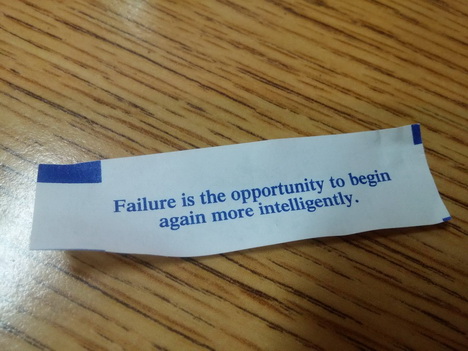
If you have any additional questions or comments, please email me at joe@seperac.com.
Click Here to go back to the site.